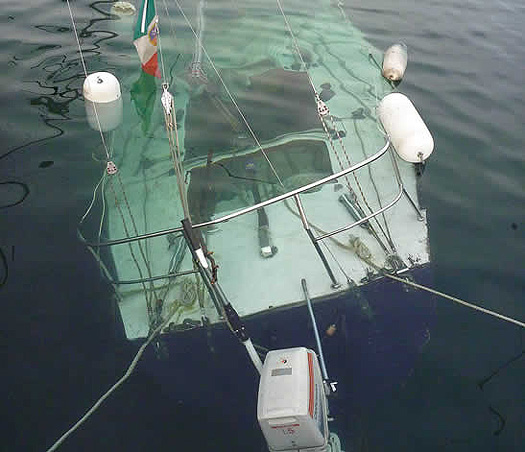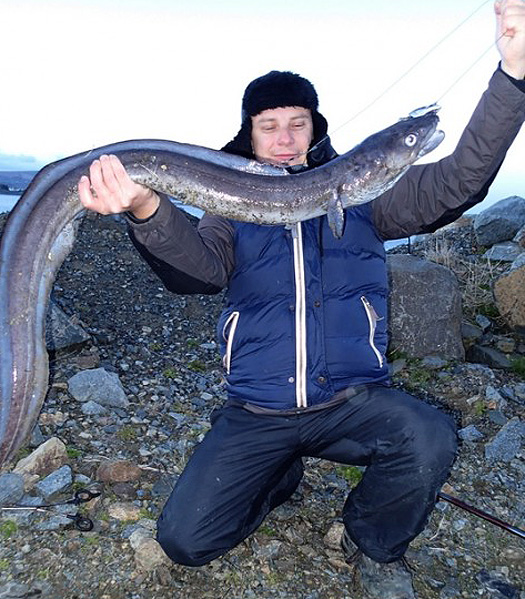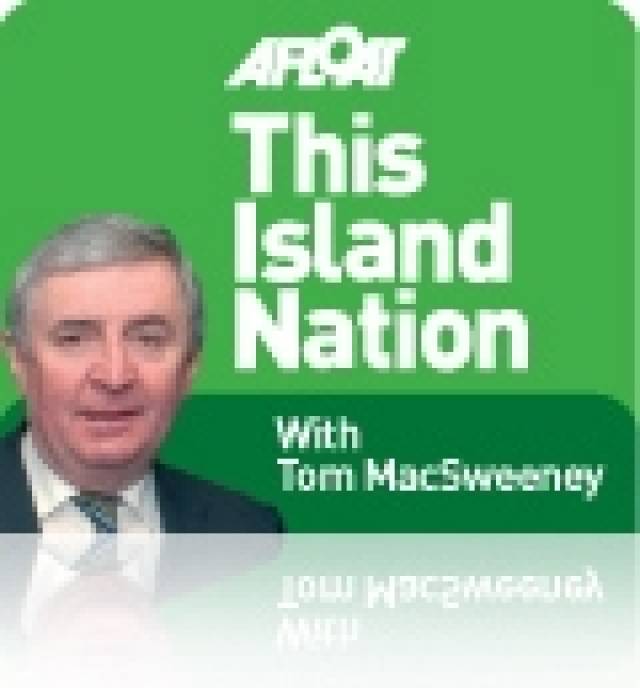This week on THIS ISLAND NATION .... Fishing coastal communities could face €50m. losses .... a 9,000-mile voyage with no one aboard the vessel .... More seafarers lose their lives .... A 3-year whale and dolphin plan ... An eerie fish caught on the East Coast .... and more...
IRISH FISH STOCKS BETTER THAN EVER BEFORE – BUT FISHING COMMUNITIES COULD FACE €50m. LOSSES
There has been an improvement in the state of fish stocks according to the Minister for the Marine. Based on the Sea Fisheries Sustainability Impact Assessment carried out by the Department of the Marine; Bord Iascaigh Mhara, the State Fisheries Board and the Marine Institute; of the 59 stocks in which Ireland has a share of the EU TAC, 42% are now fished sustainably compared to 36% in 2011.
"While many stocks in which the Irish fleet have an interest are not in a healthy biological state, there has been an improvement in 2012 on the state of fish stocks," says Minister Coveney. "The state of the resource base, in terms of the biomass and the population of mature fish in the stock, has also improved. The number of depleted stocks has declined from 12 to 8. Further efforts are needed both in terms of setting TAC levels and taking other measures such as reducing catches of juvenile fish and dealing with unacceptable levels of discards. These issues will be a priority for me during the Irish Presidency work programme on the reform of the Common Fisheries Policy in the first half of 2013"."
However, contrasting with this good news, there could be problems ahead for coastal communities during negotiations on annual TACs and quotas which will take place at the EU Commission in Brussels from December 18 to 20. This is the annual haggling over catching rights, a ridiculous time of the year in which to hold these discussions when there is far too much pressure within the available timeframe.
"From an analysis undertaken by BIM the current EU proposals would have significant consequences on our fishing industry and our dependant coastal communities. Potentially there is a loss of approximately €15.5m for our whitefish and prawn fishing industry as well as knock-on effects for processors, hauliers and others. This equates to losses in the order of €53m for coastal communities where the direct cost and indirect costs -processing, net making and others are taken into account".
Shipping – MORE SEAFARERS DIE
The dangers of life at sea were shown again this week when eleven seafarers died in the cold waters of the North Sea. But it seemed to me to be like just another statistic, with brief news media coverage, just more dead sailors and their families left to grieve. Those who died were mainly Polish, including the Captain, Filipinos and Ukrainians, in the frigid waters when the 148-metre (485ft) Baltic Ace, carrying a cargo of cars and registered in the Bahamas, sank after colliding with the 134-metre (440ft) container ship Corvus J, registered in Cyprus, in darkness near busy shipping lanes some 65 kilometres (40 miles) off the coast of the southern Netherlands. The cause of the collision is not known. The crew of 24 of the Baltic Ace abandoned ship. The Corvus J was heavily damaged and, after assisting in the search for survivors, went to Antwerp where an investigation began and the ship was assessed for repairs. Responsibility for investigating the collision lies with the States under whose flags the ships were sailing - the Bahamas and Cyprus - because the collision happened outside Dutch territorial waters
A ROBOT ON THE OCEANS
What does this mean for the future of ocean voyaging? A wave-powered robot, Papa Mau, has completed a 9,000-nautical mile journey from San Francisco, California, to Australia in just over a year. California ocean data company Liquid Robotics created the robot.
"It weathered gale-force storms, fended off sharks, spent more than 365 days at sea since November of last year, skirted around the Great Barrier Reef and finally battled and surfed the east Australian current to reach its final destination in Hervey Bay near Bundaberg, Queensland, Australia," said Bill Vass, CEO of Liquid Robotics. The company pioneered and developed the Wave Glider, wave-powered autonomous robot to gather and transmit scientific data on waves, weather, salinity, water temperature, and dissolved oxygen. It took energy from ocean waves and had solar panels for computing navigation and to power its sensors.
Liquid Robotics said the robot travelled through and measured more than 1,200 nautical miles of chlorophyll bloom along the equatorial Pacific. These blooms indicate proliferation of phytoplankton that is fundamental to ocean life and climate regulation. Phytoplankton are microscopic plant-like organisms that provide food for other marine life and play a key role in consuming carbon dioxide during photosynthesis. While satellites can monitor chlorophyll blooms, Liquid Robotics suggested its technology can provide images of the phytoplankton in more detail for marine and climate change scientists. The company has a second ocean robot also destined for Australia where it is expected to land early next year. Two other robots are heading for Japan, but one of them, Fontaine Maru, has been damaged and has been sent radio instructions under which it is returning to Hawaii to be repaired.
Naval – IRAN HAS THE BLUES
Iran has unveiled a bright blue submarine. It was shown during a broadcast on the country's state television, KSPR, leaving Naval experts around the world discussing the reason for its unusual colour. "It may be that it is intended to be less visible from the air in the clear waters of the Gulf," said some, but others pointed out that green was selected for two other recently-completed Iranian submarines. Another suggestion is that it is an Iranian publicity stunt to highlight to the world that it has the ability to build submarines, even if they look old-style from the pictures. Iran has said it will test its new submarines in the Persian Gulf and then send into the Atlantic!
Keep an eye out!
Sailing – FIGARO NOT FOR IRELAND
The route for next year's French Figaro race has been announced at the Paris Boat Show and does not include an Irish port. It will start on June 2 from Bordeaux, the first time the city has hosted the race. Two legs will follow the Bordeaux start visiting Spain and Portugal before the race returns to Roscoff on the northeast coast of Finistere, which has not hosted the race before and finishes in the Normandy port of Dieppe, which was previously included in the race in 2009 and 2011.
Cork sailor David Kenefick is continuing his rigorous training progamme in La Grande Motte for the race. He will take a two-week Christmas break, Brian Carlin who is part of his team, told me. "In the New Year his training will intensify with 3 weeks on and 2 weeks off until March. Since the launch of his campaign there has been a huge level of support. A lot of people are behind David. It's great to see." (A profile of David appears in the Island Nation column of the 2013 Afloat annual in shops next week).
WATCH THE BOAT !

If you are keeping your boat in the water this winter and it seems there are quite a few owners who are trying to save on boatyard costs in these recessionary times, then be sure to check it regularly. So a reader suggests when sending me the above photograph of a boat which has gone underwater. "You wouldn't want your boat in this condition," he warns.
Angling – WHAT AN EERIE FISH !
"Incredible photos of a conger eel caught on the East Coast," Paul Bourke, Angling Information Officer with Fisheries Ireland tells me and so they are.

David Muirin of East Coast Fishing provided the photos to Fisheries Ireland and I gather that the East Coast has a dozen harbours, small and big, where a good population of congers are present.
Marine Environment – THREE-YEAR PLAN FOR WHALES AND DOLPHINS
The sight of whales breaching off West Cork in the past few weeks has been magnificent. The Irish Whale and Dolphin Group, established twelve years ago this month, is developing a three-year plan for its work "dedicated to the conservation and better understanding of whales, dolphins and porpoises in Irish waters through study, education and interpretation."
This week the Group has been carrying out a biopsy sampling of the humpback whales off West Cork. "From the images so far collated we can confirm that there are in total six humpbacks associated with this activity, two of which have already been biopsied and all have previously been recorded in Irish waters," according to IWDG Sighting Co-ordinator, Padraig Whooley. In order to assess the success or otherwise of refloating live stranded cetaceans, the IWDG has been promoting the tagging of refloated animals and, in collaboration with Galway/Mayo Institute of Technology, has purchased tags and been granted a licence for three years to tag a sample of cetaceans considered good candidates for refloating.
One of the issues which the Group has been considering is the public reaction to the live stranding of the fin whale in Baltimore this summer. There was public upset about its suffering and the length of time it took to die. The IWDG has been reviewing the euthanasia of large whales and there are likely to be discussions with the Naval Service and the Army about procedures to deal with any similar case in the future.
SHIPPING CONTAINERS MAKE WOMEN'S HOUSING
Canada is the latest country in which unused containers are being used for housing. Twelve are being turned into a social and affordable housing project for homeless women in Vancouver.
Email: [email protected]
Regular news from Tom MacSweeney on Twitter: @TomMacSweeney






























































